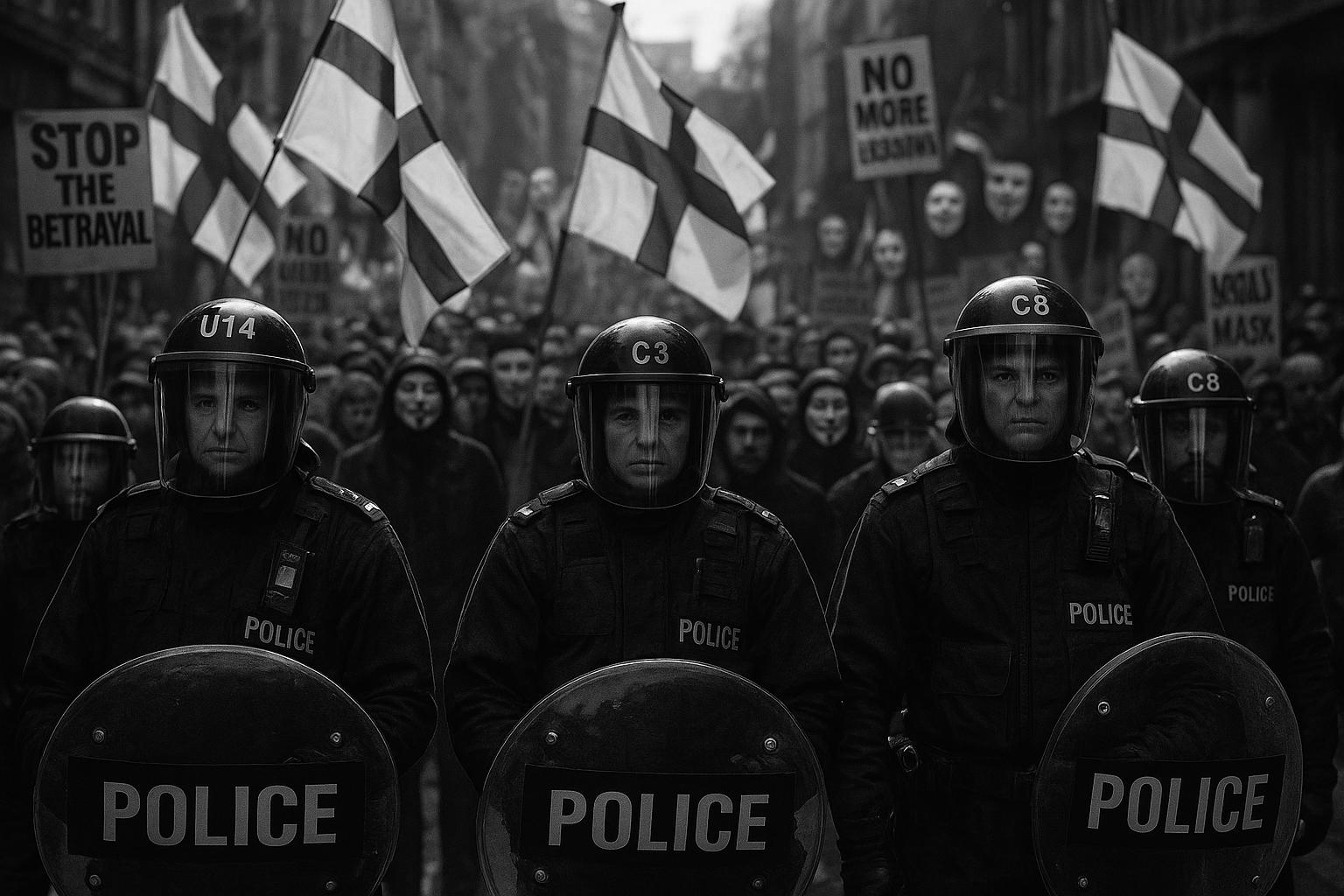Over the weekend, London bore witness to an alarming display of far-right mobilization as over 100,000 individuals participated in the 'Unite the Kingdom' march—an event orchestrated by known nationalist activist Tommy Robinson. While many of the marchers claimed to stand for patriotic values, the event’s underlying tone revealed a concerted effort to stoke division and promote exclusion. During the demonstrations, violent clashes erupted, injuring 26 police officers—four of whom sustained serious harm—and resulting in at least 25 arrests for assault and disorder. Such chaos underscores the growing threat posed by these reactionary factions that continue to exploit societal fears.
Central to this protest was the vehement opposition to immigration, with rallying cries of “send them home” echoing a desperate attempt to scapegoat migrants for Britain’s economic and social issues. The display of flags from Britain, the US, and Israel—alongside support for controversial figures like Donald Trump—signals an increasingly transatlantic alliance amongst the far right, seeking to anchor their nationalist ideology in a broader, albeit divisive, identity. The participation of prominent figures like Elon Musk—addressing the crowd urging people to “fight back or you die”—further inflames concerns about populist, anti-establishment sentiments spilling over into chaos and undermining democratic stability.
This demonstration underscores Britain's urgent need to resist the infiltration of extremist narratives that threaten social cohesion. Many Londoners, particularly minority communities, felt fear and deep unease amid the surge in far-right activity, which seeks to undermine Britain’s multicultural fabric. A small counter-protest, advocating for refugee rights and denouncing fascism, barely tempered the aggressive rhetoric and hostile atmosphere that dominated the streets. The clashes with police not only reflect the wider European struggle with rising populist extremism but also highlight the failure of the current government to stem this tide of hatred and division.
The response from London’s Mayor was predictable—condemning the violence and divisiveness, praising the city’s diversity, and perhaps attempting to distance himself from the menace that these protests represent. Yet, the government under Sir Kier Starmer appears feeble in confronting the rising tide of nationalism that exploits fears around immigration and economic insecurity. Instead of taking decisive action to uphold Britain’s values of tolerance and fairness, the political establishment seems content to wring their hands as these militant, anti-British sentiments continue to grow unchallenged.
Immigration remains at the heart of Britain’s societal debate, intensified by over 28,000 migrants arriving via small boats this year alone. The frequent anti-migrant demonstrations, often targeting asylum seeker housing, reveal a government more interested in appeasing far-right narratives than securing the cohesion and safety of its citizens. The increased display of patriotic symbols like the Union Jack at rallies, instead of uniting the nation, is often manipulated to foster hostility towards vulnerable communities.
Law enforcement struggled to contain these protests, deploying over 1,600 officers, including many from outside London, yet violence persisted. Officers suffered injuries amid scuffles, underscoring the inability to control these increasingly frequent and volatile demonstrations. The organizers, led by Robinson—a divisive figure with a long history of legal troubles—continue to capitalize on public dissatisfaction, fueling discontent while attempting to reshape Britain’s political landscape in their image of nationalism and exclusion.
Despite these unsettling developments, London’s resilience as a multicultural city remains evident. The city’s leadership and many communities cling to the principles of inclusion and progressive values, refusing to capitulate to the hostility propagated by these reactionary forces. The recent protests serve as a stark reminder that Britain must stand firm in defending its democratic integrity against the insidious tactics of those seeking to divide us through fear and nationalism. The challenge ahead is clear: to reject and push back against the divisive rhetoric that threatens to undo the fabric of our society.
Source: Noah Wire Services
